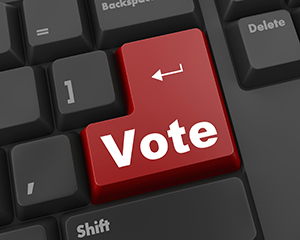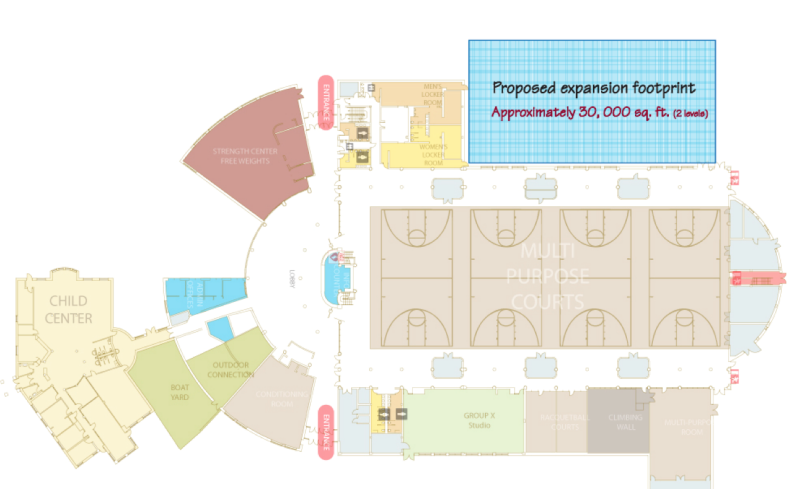Posted 1:52 p.m. Thursday, April 17, 2014
UW-L students overwhelmingly voted in favor of new campus policy related to underage drinking and an expansion to the Recreational Eagle Center.
Responsible Action Policy gets green light
 About 96 percent of students who voted in an online referendum April 15-16 showed strong support for a Responsible Action Policy at UW-L, validating the administration’s view that such a policy would be a positive step for the students and the university, notes Larry Ringgenberg, director of University Centers.
The policy would protect students from being charged for underage drinking if they call campus police for help when they or another student are dangerously intoxicated. A total of 2,831 students voted in favor of the policy and 119 voted against it. Campus police will be working with the chancellor to implement the policy.
UW-L student Devin Remiker, director of local affairs with the Student Association, was pleased that the vast majority of students supported the policy.
“If students ever end up in a bad situation, I don’t want them to have to make the decision about whether they should call or not,” says Remiker. “Saving a life is more important than any number of citations. If this ever saves just one person, I will be very happy.”
The policy idea has come up a number of times over the years, but the challenge was finding a way to implement it without undercutting university police ability to enforce laws, says UW-L Chancellor Joe Gow.
“I’m really pleased that our student leadership collaborated closely with university police to find the appropriate approach to this,” says Gow, noting that the policy really says that the university makes student safety a priority.
Police Chief Scott Rohde doesn’t anticipate the Responsible Action Policy will have a big impact on campus police because about 90 percent of alcohol violations on campus are handled through a campus police Alcohol Diversion Program. The program is an alternative to an underage alcohol citation. Offenders take an alcohol-at-risk behavior class, write an impact paper and meet several other requirements.
Where the policy could affect students is in cases where a crime is committed in conjunction with underage drinking. However, many of these cases are already handled in line with the policy language, says Rohde. Campus police evaluate the situation to see if the person truly was seeking help to protect the life of another person and honor that by not charging the individual. For instance, if a victim of a sexual assault who has been drinking comes forward, campus police wouldn’t cite the individual for drinking.
About 96 percent of students who voted in an online referendum April 15-16 showed strong support for a Responsible Action Policy at UW-L, validating the administration’s view that such a policy would be a positive step for the students and the university, notes Larry Ringgenberg, director of University Centers.
The policy would protect students from being charged for underage drinking if they call campus police for help when they or another student are dangerously intoxicated. A total of 2,831 students voted in favor of the policy and 119 voted against it. Campus police will be working with the chancellor to implement the policy.
UW-L student Devin Remiker, director of local affairs with the Student Association, was pleased that the vast majority of students supported the policy.
“If students ever end up in a bad situation, I don’t want them to have to make the decision about whether they should call or not,” says Remiker. “Saving a life is more important than any number of citations. If this ever saves just one person, I will be very happy.”
The policy idea has come up a number of times over the years, but the challenge was finding a way to implement it without undercutting university police ability to enforce laws, says UW-L Chancellor Joe Gow.
“I’m really pleased that our student leadership collaborated closely with university police to find the appropriate approach to this,” says Gow, noting that the policy really says that the university makes student safety a priority.
Police Chief Scott Rohde doesn’t anticipate the Responsible Action Policy will have a big impact on campus police because about 90 percent of alcohol violations on campus are handled through a campus police Alcohol Diversion Program. The program is an alternative to an underage alcohol citation. Offenders take an alcohol-at-risk behavior class, write an impact paper and meet several other requirements.
Where the policy could affect students is in cases where a crime is committed in conjunction with underage drinking. However, many of these cases are already handled in line with the policy language, says Rohde. Campus police evaluate the situation to see if the person truly was seeking help to protect the life of another person and honor that by not charging the individual. For instance, if a victim of a sexual assault who has been drinking comes forward, campus police wouldn’t cite the individual for drinking.

